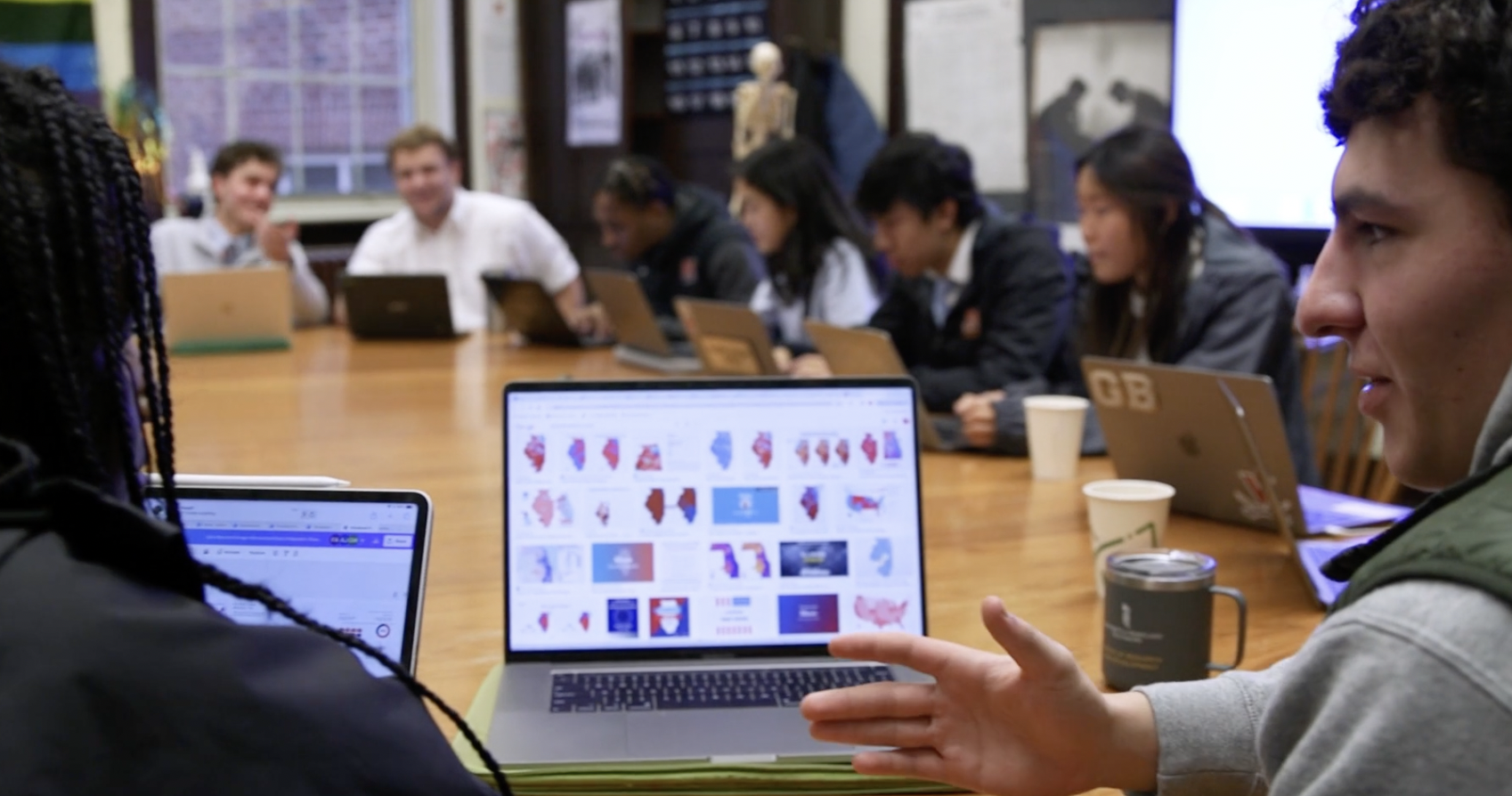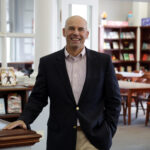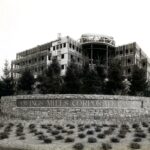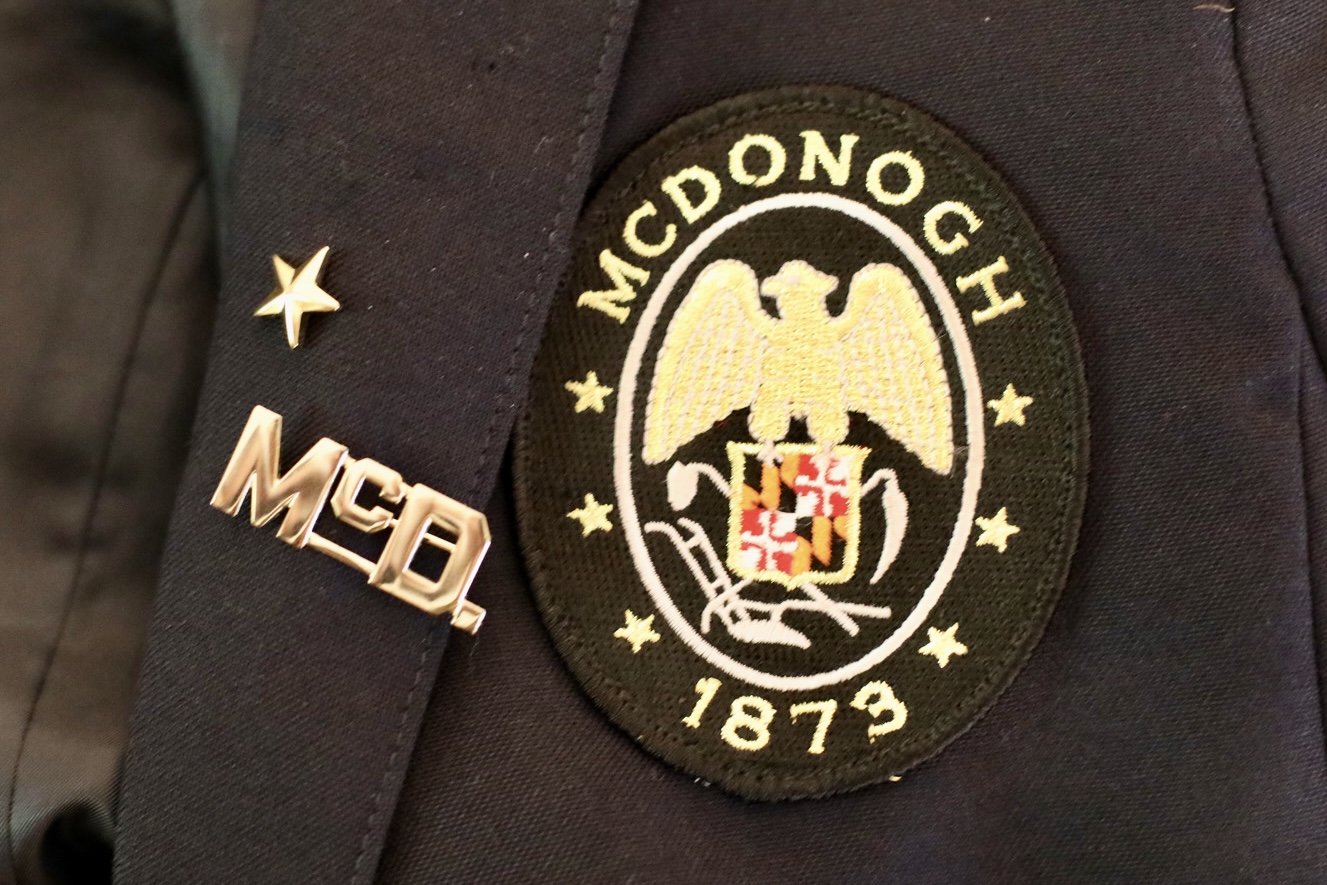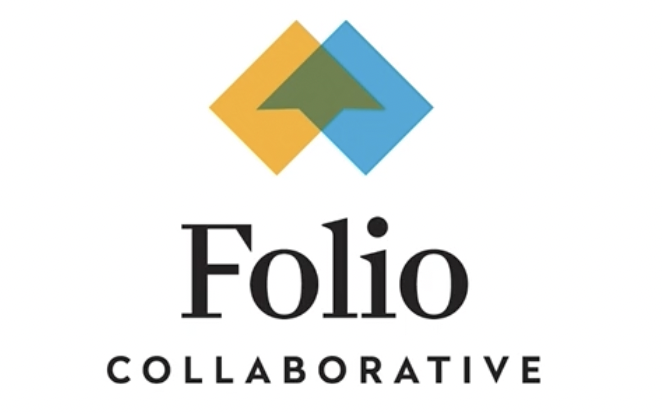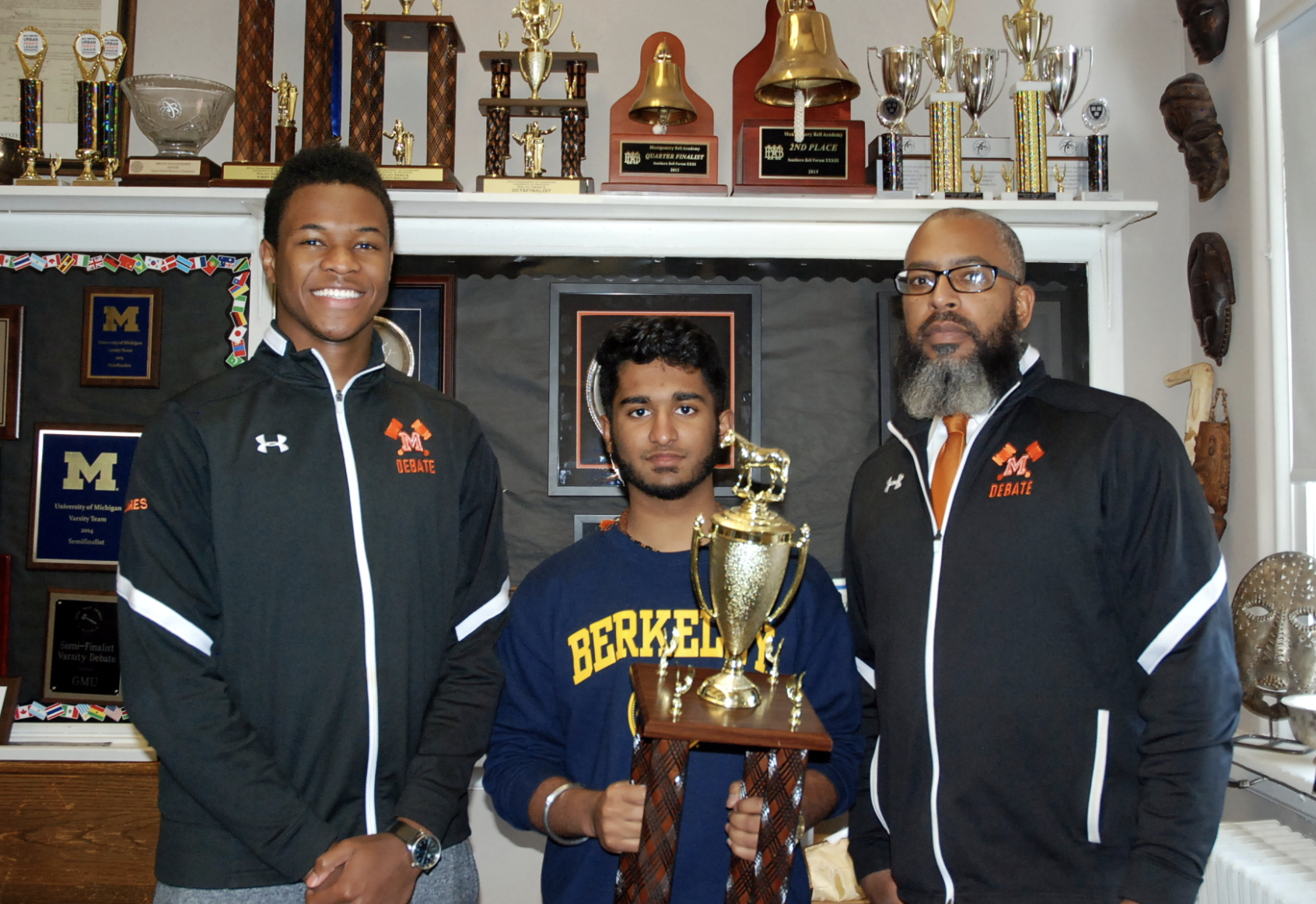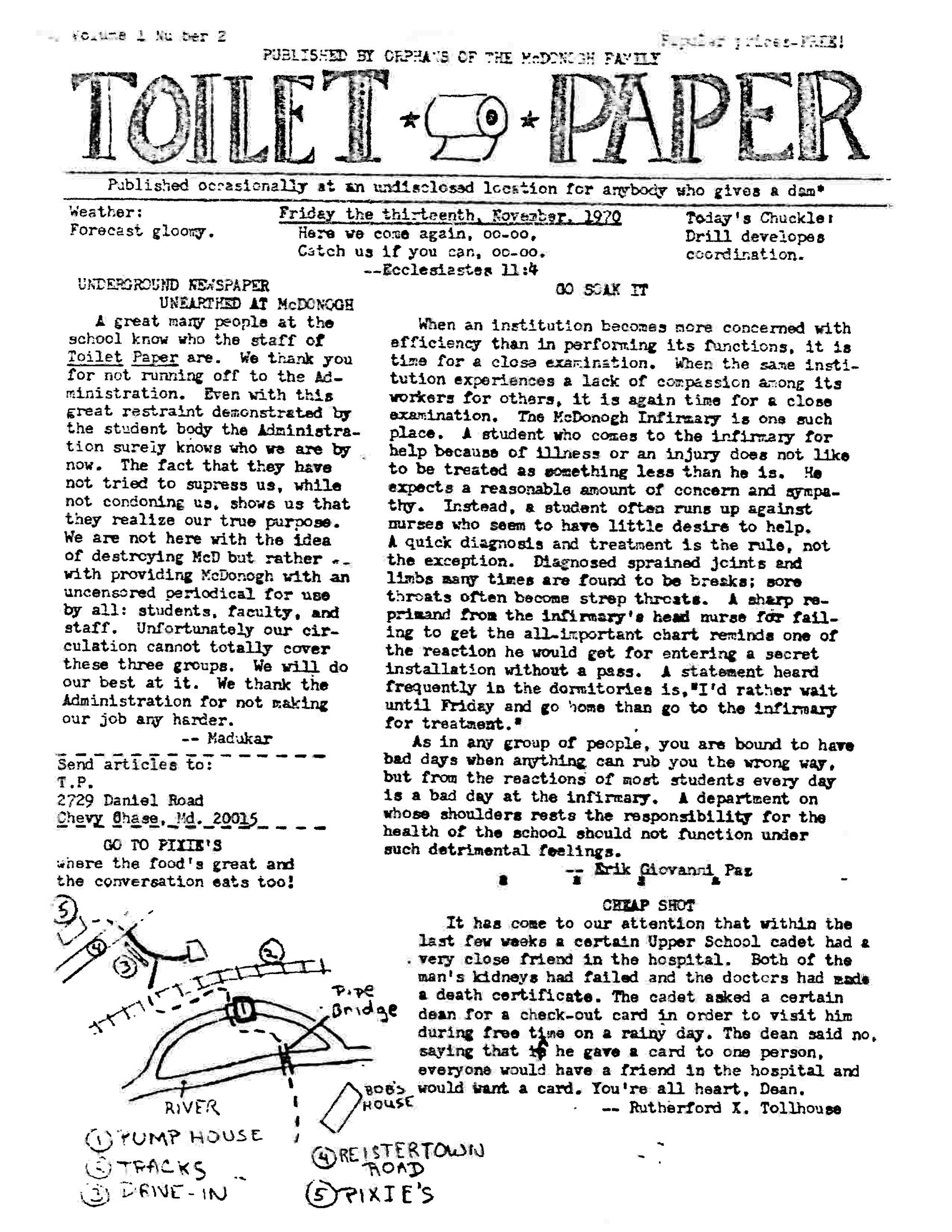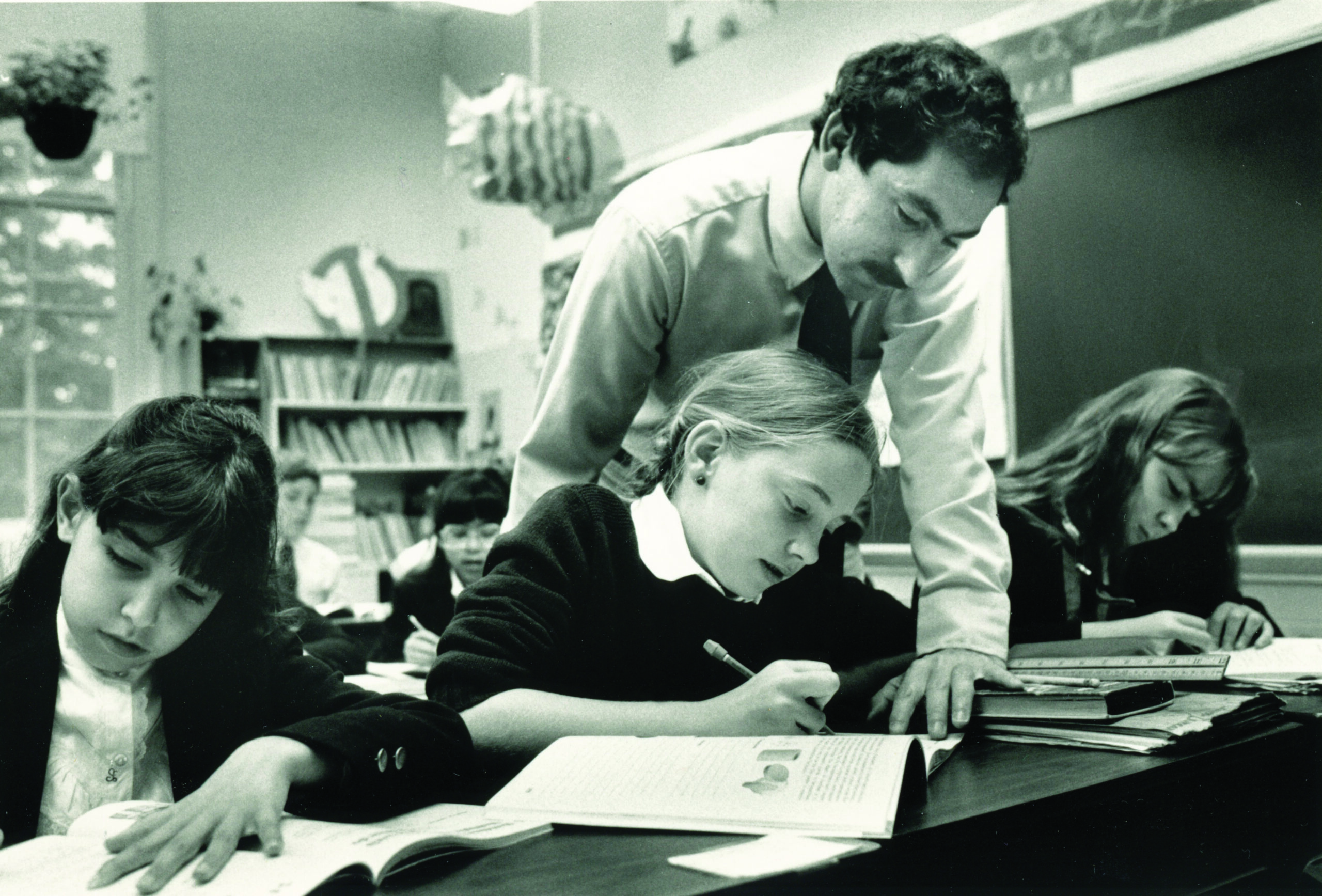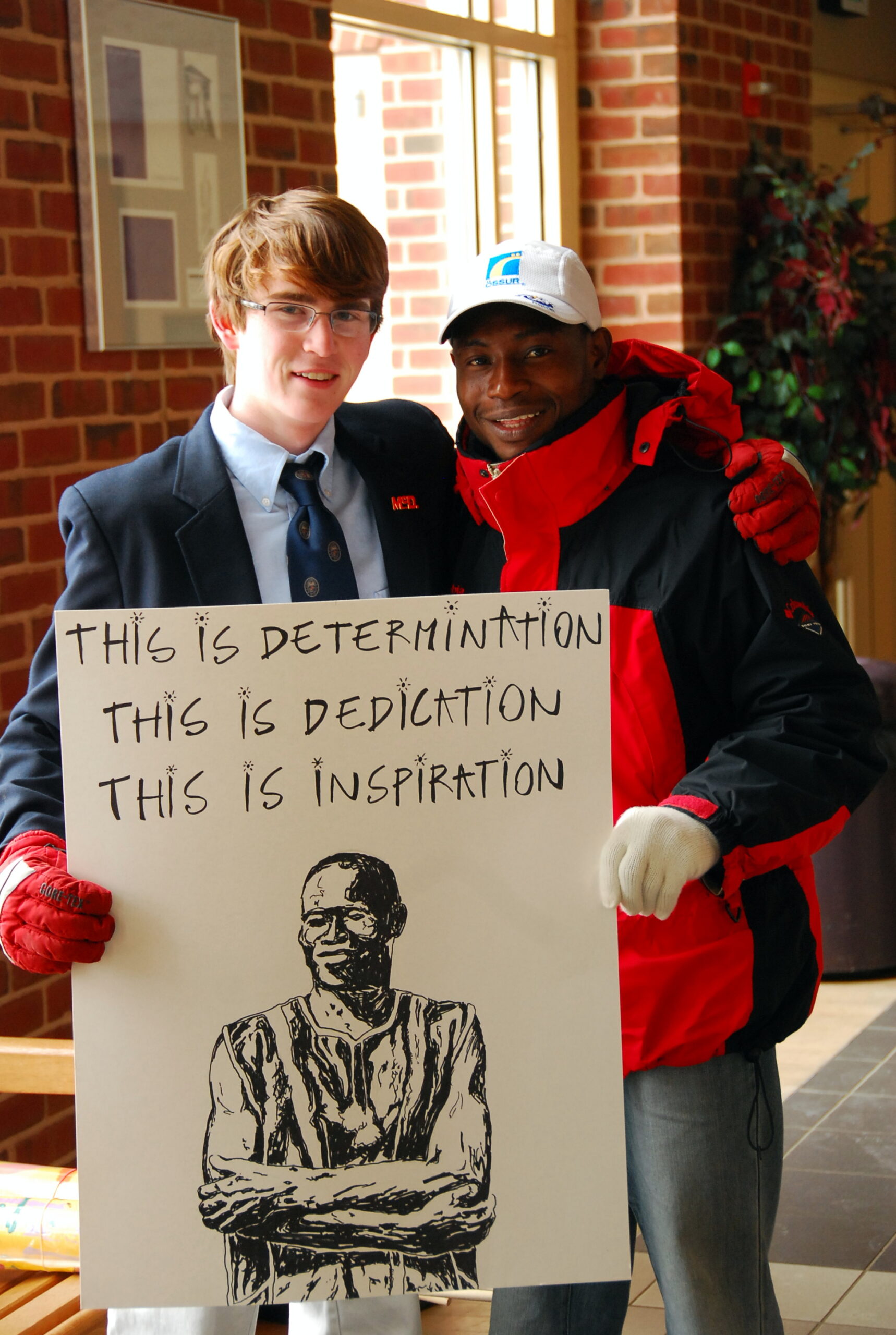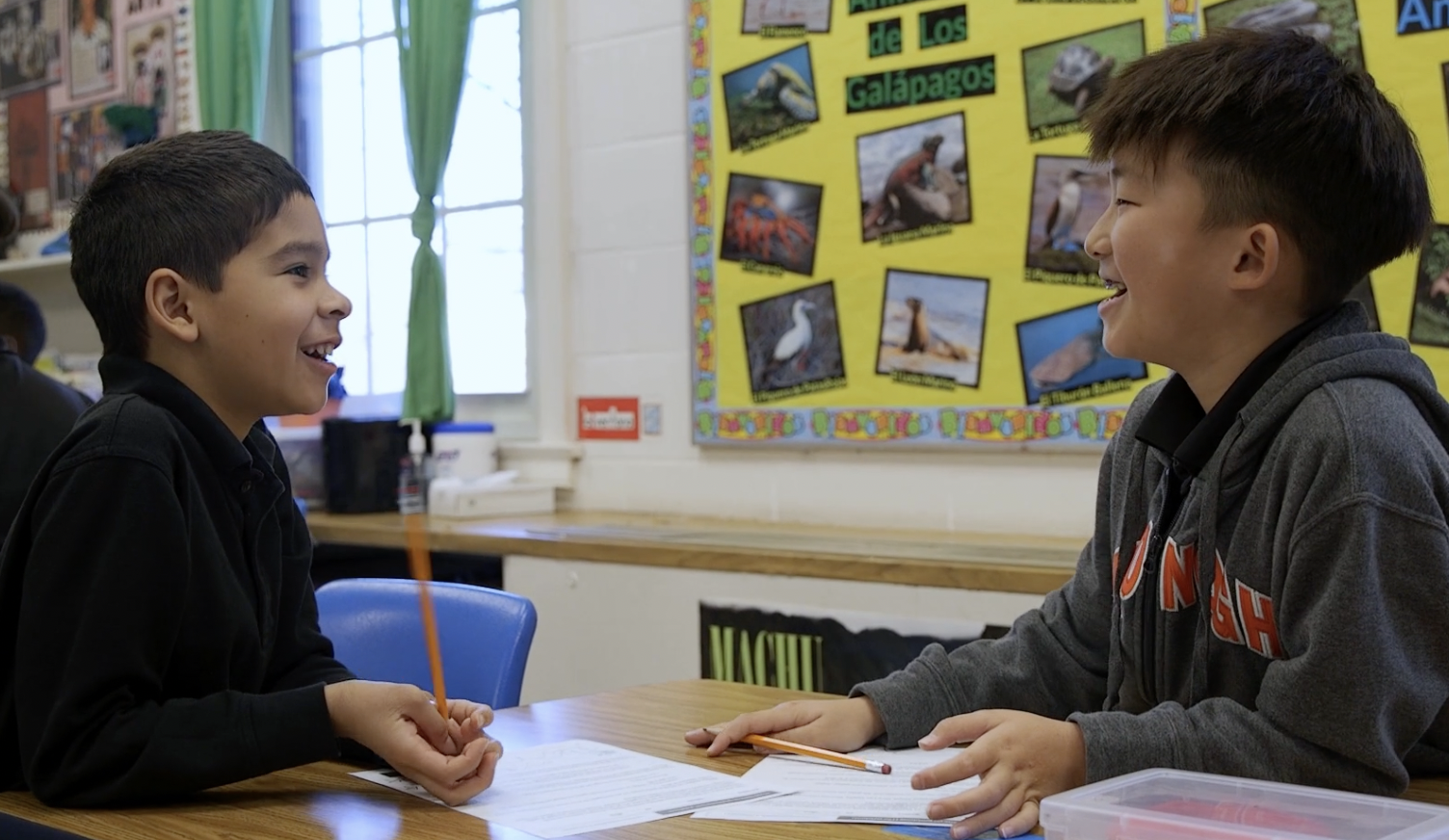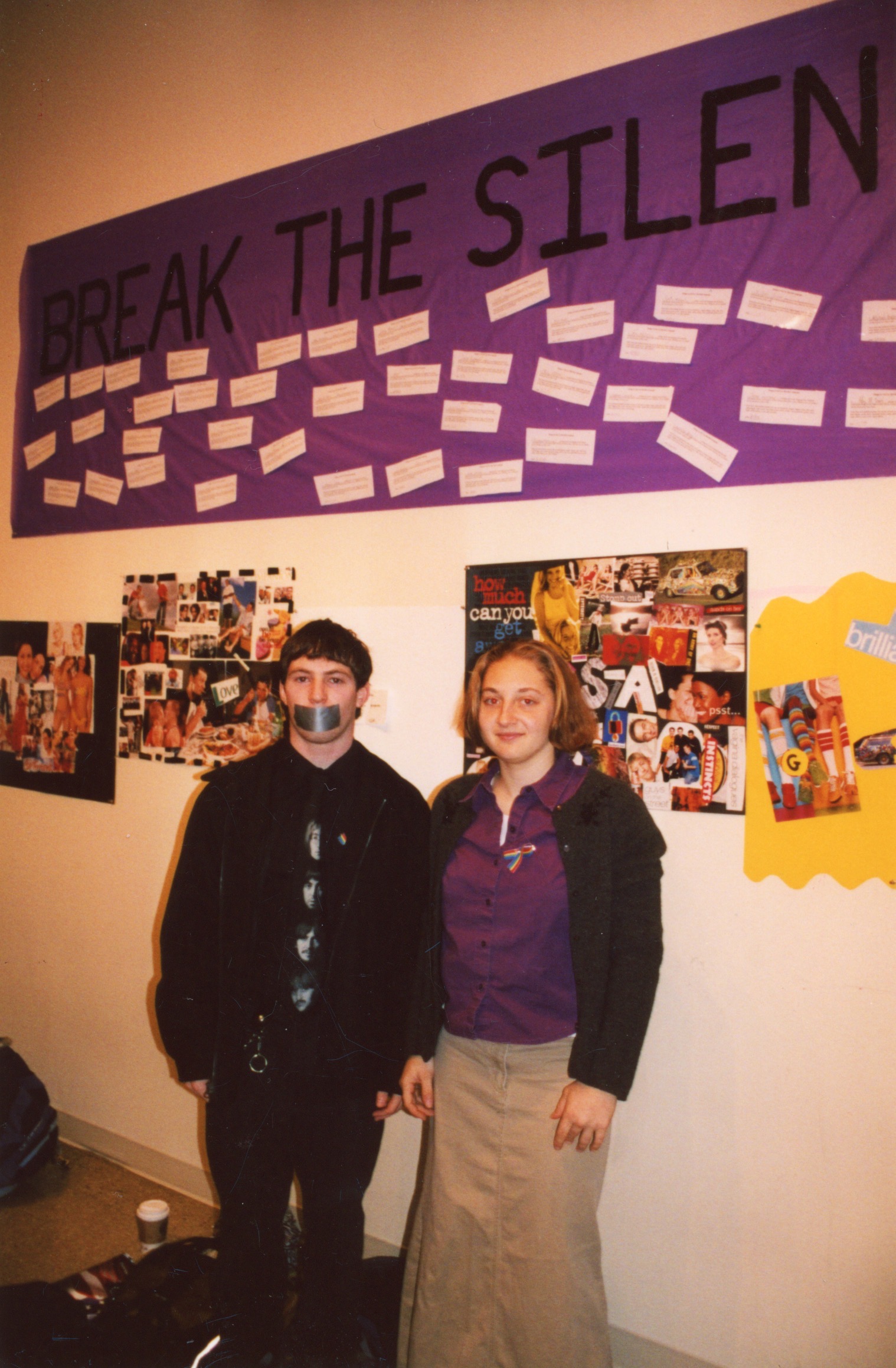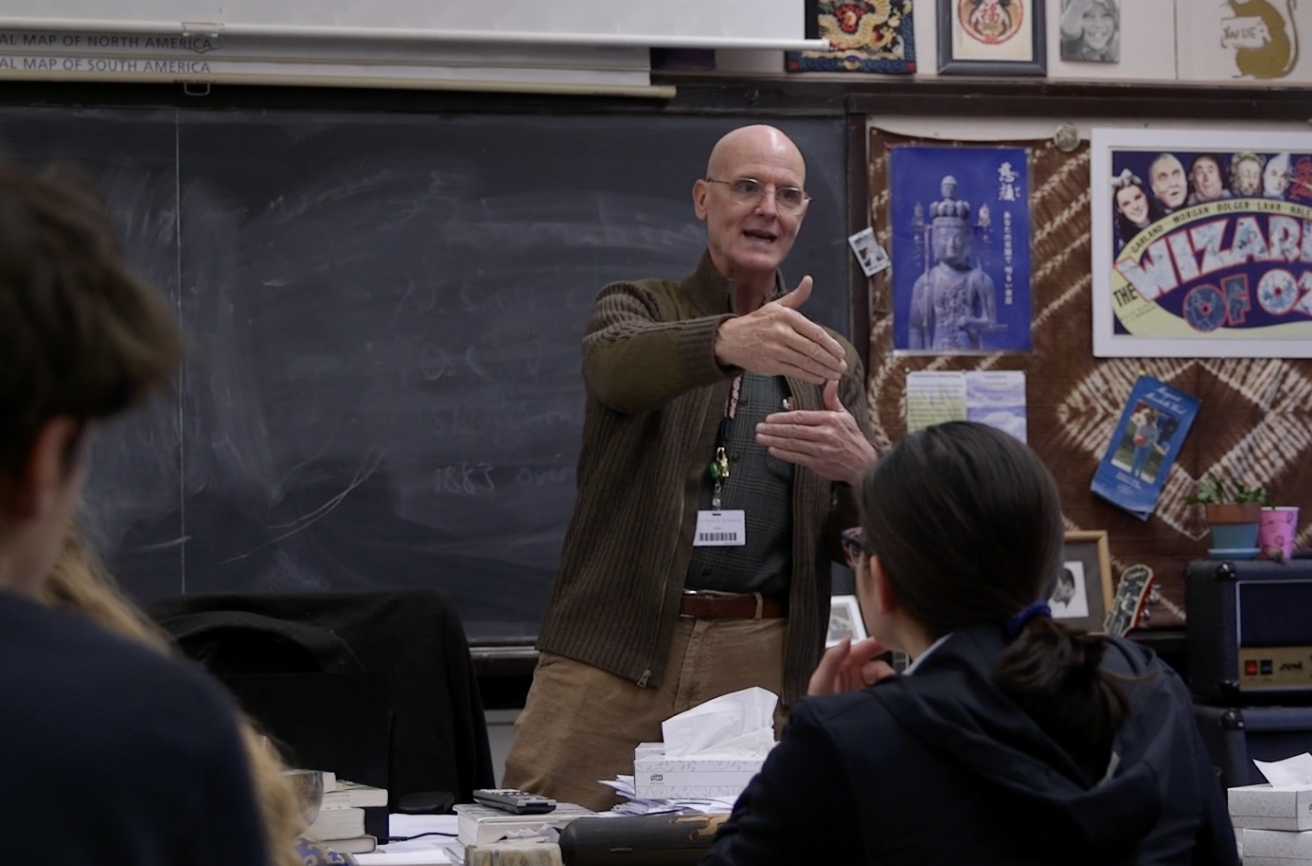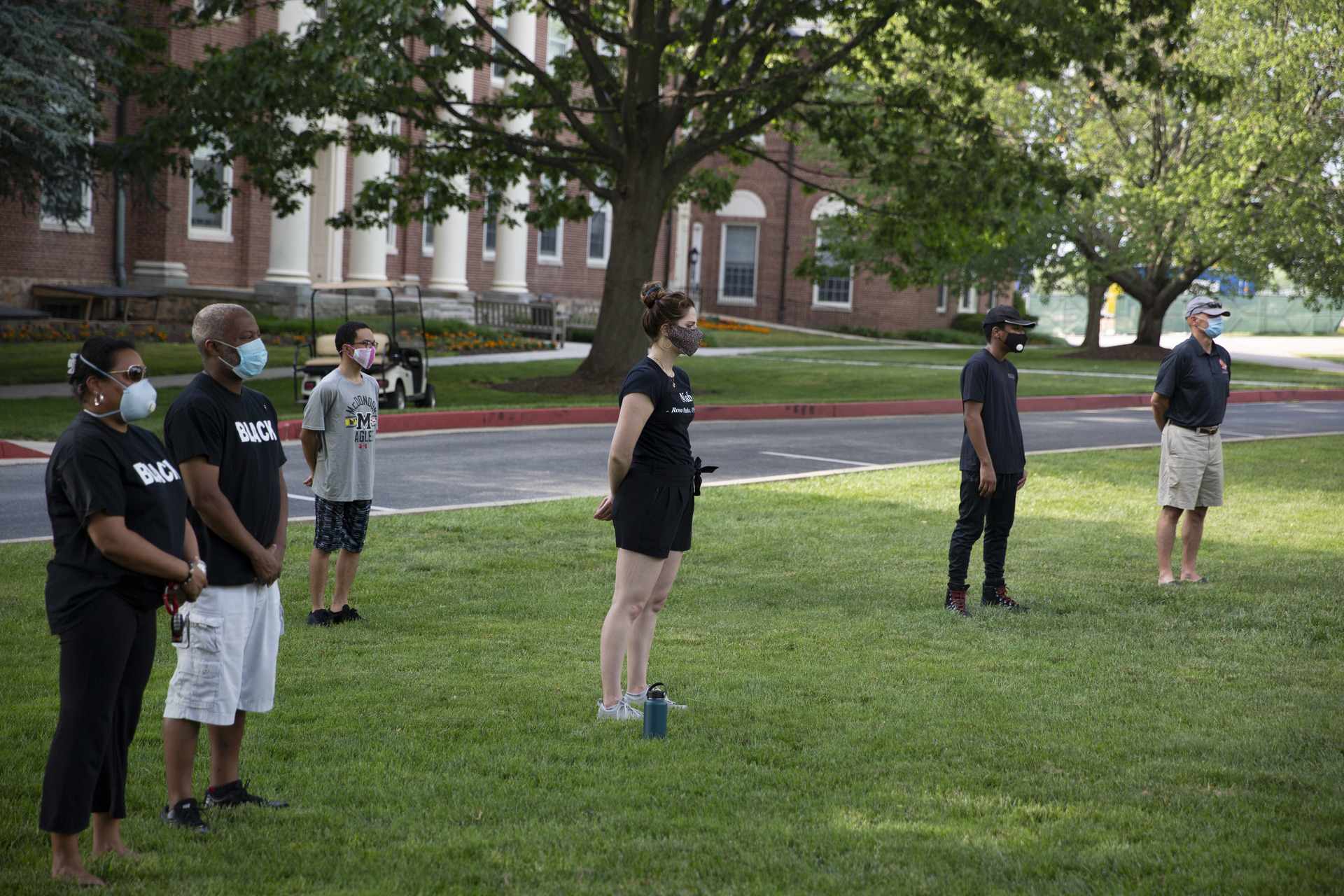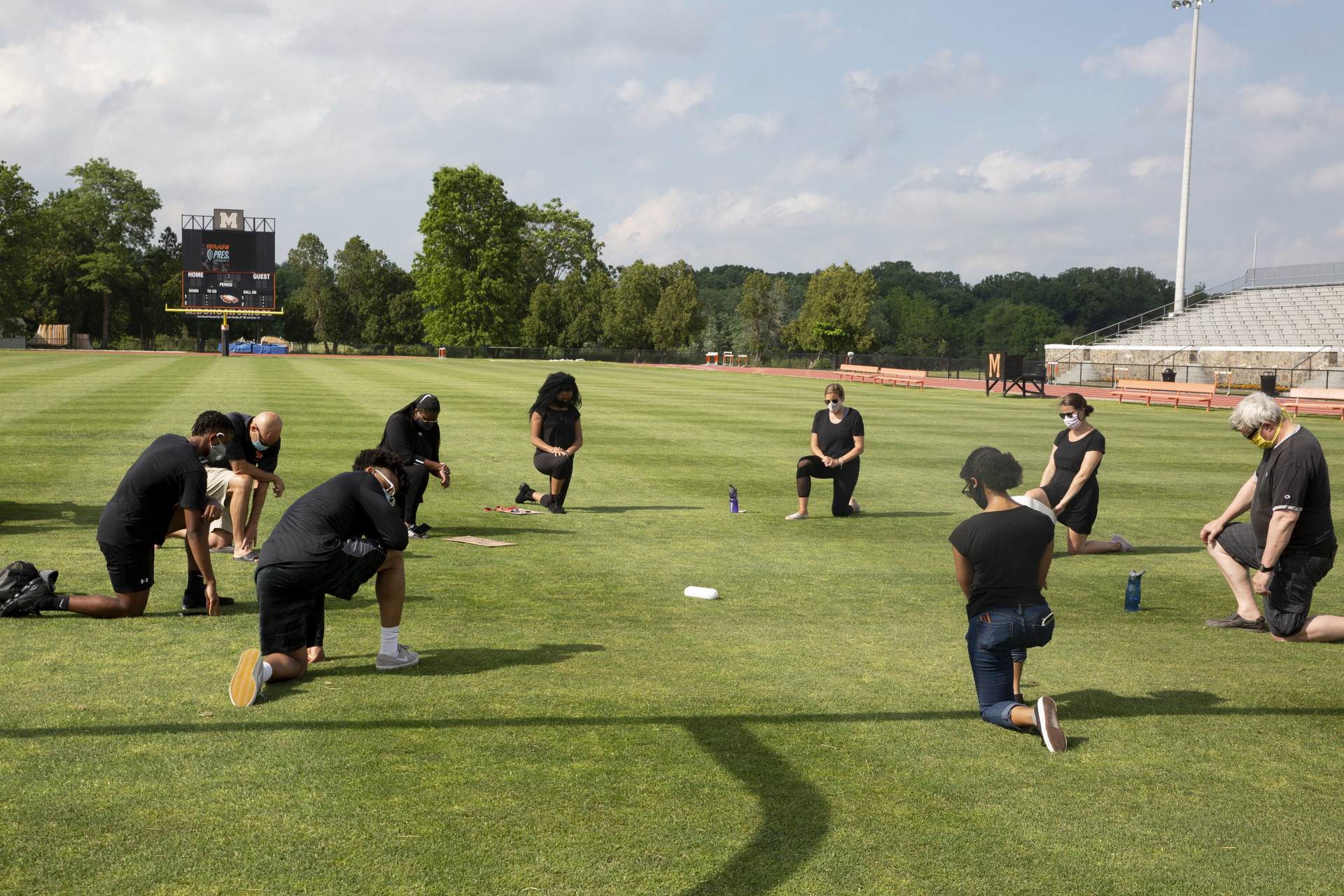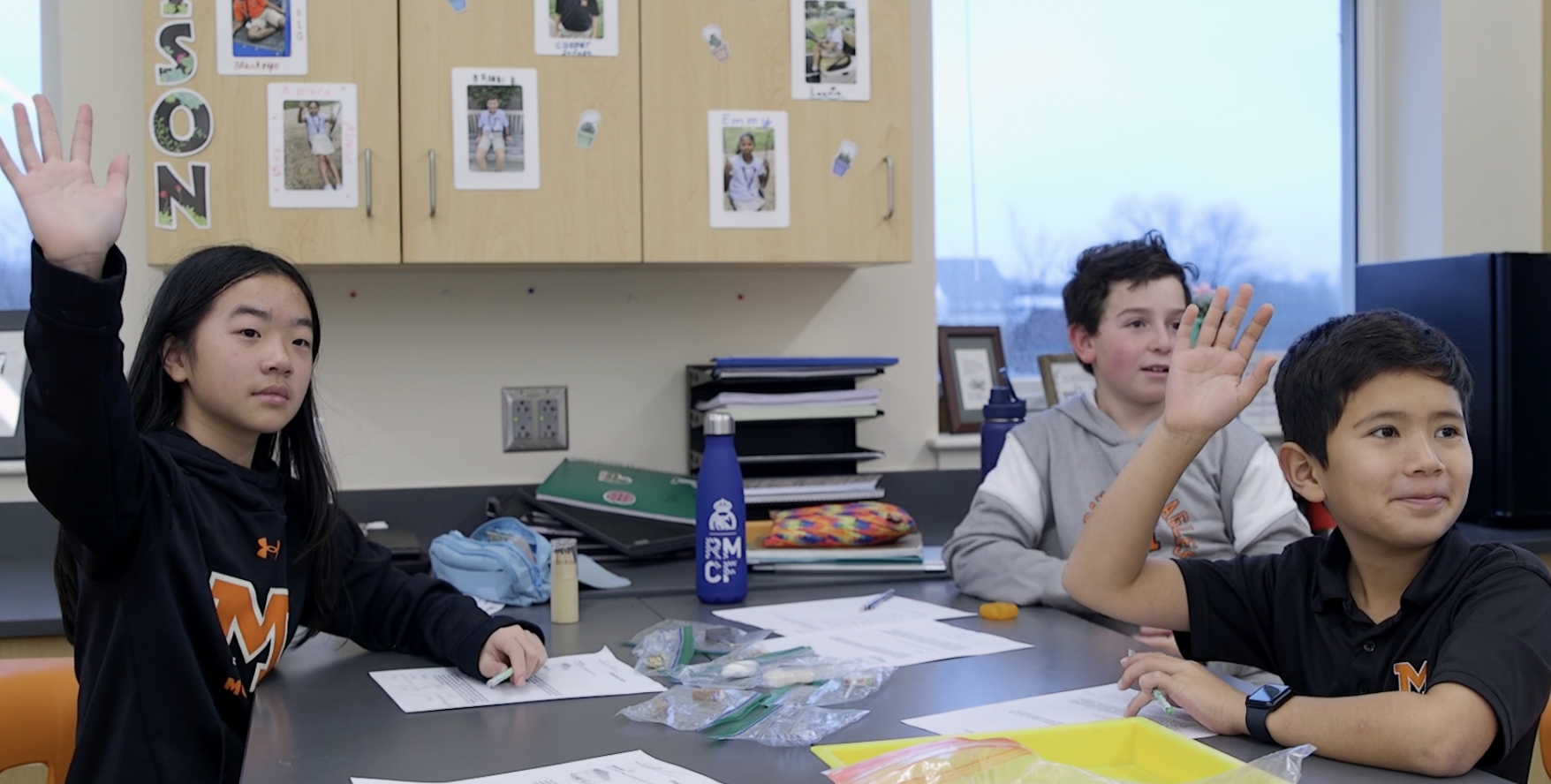McDonogh’s first 100 years, in which the School functioned as a military institution, provided little opportunity for freedom of expression. In the 1970s as protests over the Vietnam War, civil rights, and women’s rights were taking place off campus, McDonogh students began speaking out about issues that were important to them. A March 3, 1972, editorial in The Week enumerated a handful of student protests that took place the previous year, including the publishing of an underground newspaper called Toilet Paper that callously attacked the administration, teachers, the military, and fellow students; the “Second Effort Movement” in which students painted the water tower and the cannon; and a walk-out on the eve of Fair Day. The editorial then noted that in 1971, the student body “turned from underground and protest tactics to the apparently more successful ones of participation and unity of action.” In the end, the piece predicted that the future would be “of an even freer and healthier McDonogh.”
Over the next five decades, students expressed their opinions in various ways as faculty taught the importance of viewing issues from different perspectives. In 2020, McDonogh released a statement on Freedom of Expression and Civil Discourse and the role of the School. In part, it says: “McDonogh School teaches students how to think and not what to think. As LifeReady, our academic vision, promises, McDonogh graduates ‘self-reliant, critical thinkers who can form, test, and revise their ideas — for themselves, and in the service of others.’ To develop these abilities and to be truly inclusive and respectful, teachers and students must invite and analyze all debatable ideas and points of view. Critical reasoning remains a core competency for college and career, but just as importantly, the ability to understand, evaluate, and act on ideas responsibly prepares students for healthy democratic participation for life.” In short, today’s students are learning the importance of building an understanding of a disputable issue or concept to form an opinion and/or act.
In the spring of 2020, heartbroken and infuriated by the murders of three Black people George Floyd (Minneapolis, MN), Breonna Taylor (Louisville, KY), and Ahmaud Arbery (Brunswick, GA), leaders of the Sankofa and Diversity 4 McDonogh (D4M) clubs wanted to provide an outlet for the many emotions their classmates were experiencing under the weight of such cruel injustice. Together, during the height of the pandemic, they organized a peaceful demonstration across McDonogh’s campus on the evening of June 10. More than 100 upper schoolers, faculty and staff, and alumni representatives came to protest the acts of racism and hate. They all came together to kneel in silence — a silence that called for change.
